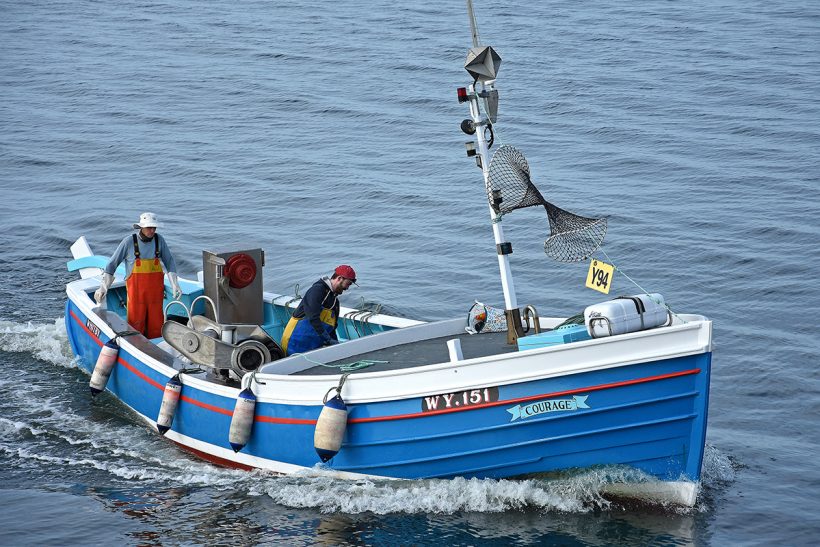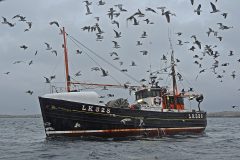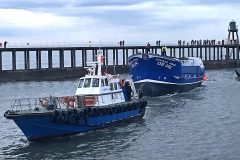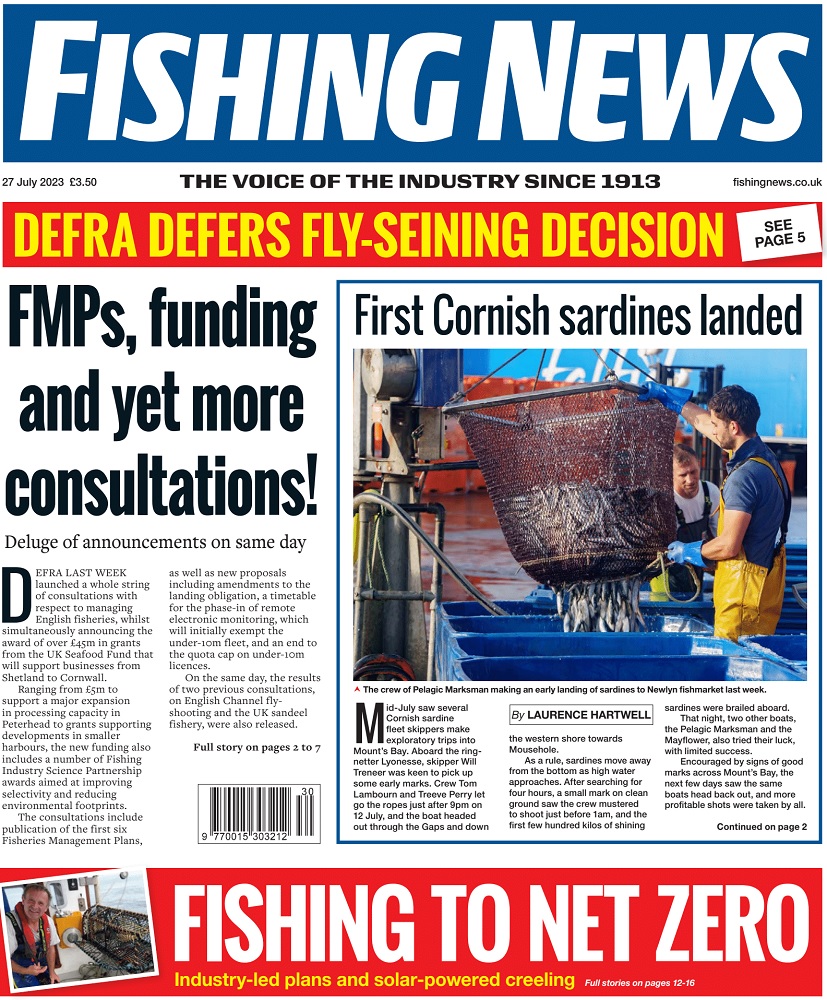Salmon netsmen on the Northumberland, Durham and Yorkshire coast again face a period of great uncertainty as regards to their future. With an interim Net Limitation Order coming up at the end of this year, lifelong netsmen are extremely concerned that this mechanism could be used to curtail fisheries, or that the Environment Agency (EA) could invoke further Byelaws, or limitations, or licence conditions.
Above: Netsmen face an uncertain future, despite accepting a succession of new regulations that have severely curtailed the hours they can fish in an already truncated season.
While netsmen received their licence application forms as usual for the 2018 season, they came with a covering letter saying they can apply, but may not be issued with licences to fish.
Although individual fishermen have lobbied and met UK Fisheries Minister George Eustice through their MPs as part of the public consultation process, the angling lobby has organised a large and well-orchestrated response to the EA’s consultation. This phenomenal level of intensity is understood to account for around 95% of the responses received, which netsmen say could be used to justify closing the historic fishery.
Ned Clark, chairman of the NFFO North East Regional Committee, said: “The issue now is a perceived problem with global salmon stocks, which is being politically manipulated into an attempted closure of traditional small boat fisheries for motives that have absolutely nothing to do with conservation. It is all about ‘who gets the fish’.

Ned Clark – “It is all about who gets the fish.”
“The science underpinning this drive to curtail North East fisheries is very spurious and, like all fishery science, is very dependent on how it is interpreted.
“The overuse of the precautionary approach, in this case, is being taken to the extreme (if A might happen, B may happen, which could lead to C happening). It is an excuse for saying we really don’t know, but we will take action anyway, just in case.
“This allows the politically-connected and well-funded NGO, angling, and riparian lobby to hammer home its 40-year crusade to end commercial fisheries.
“The precautionary approach has already led to technical downgrading in the conservation status of rivers like the Tyne, and others, from ‘Not at risk’ to ‘Possibly at risk’ status, or lower. This brings them into the category of ‘Measures need to be taken’.
“This has to be questionable when the river Tyne is experiencing consecutive record runs of salmon, and many other rivers are experiencing a revival of salmon runs, not seen in centuries – certainly in the North East. Our prolific fisheries, centred around North East rivers like the Tyne, are well-managed and there are no reasonable grounds to close them, although we accept there may be grounds for proportionate management measures.
“We accept that there are grounds for concern on salmon stocks for certain UK rivers, and the overall survivability of salmon at sea is declining, but the reasons for this have nothing to do with the impact of our fisheries.
“The natural mortality rates of salmon are considerably higher than our catches. Even our critics say our fisheries are not the problem, but argue to close them down anyway.
“The solutions to the problems with salmon are in river-habitat restoration, restocking and improving the sustainability of salmon smolts in rivers and at sea.
“Proposed closures of our fisheries are to treat the symptom, not the problem itself. It may mask a decline for a couple of years, but does nothing other than placate opportunistic carpet-baggers.
“Healthy and prosperous commercial fisheries in the North East should be celebrated as an example of how stocks can be managed well. Certainly, the criteria should not be how many fish an angler can catch.
“Fishermen are prepared to restrict their activities, to an extent, to play their part in any necessary conservation initiative, but this should only be temporary because once fisheries are closed, they are unlikely to be reopened, regardless of the numbers of salmon that may be around. This is entirely due to politics, not fisheries management.
“I sincerely hope that the minister, George Eustice, does not follow in the footsteps of Selwyn Gummer and Richard Benyon in consigning our fisheries to the history books simply because of their susceptibility to vigorous political lobbying by our detractors. This would be unfair, unjust, and undemocratic but, there again, we are just fishermen.
“As fishermen, we have to carry on and plan as usual, on the basis that we will be fishing, because we don’t have a clear picture as to what may or may not happen.
“This obviously involves ordering new nets and preparing boats, etc, at considerable cost. It would be a double financial whammy if we are closed at a stroke next year, and have to write off a large number of vessels and a lot of equipment.
“There is a good case for phased implementation of any possible measures, given the arduous, lengthy consultation and decision-making process now taking place – including a series of meetings between the NFFO and the Environment Agency since the start of 2017.”
Read more from Fishing News here.






